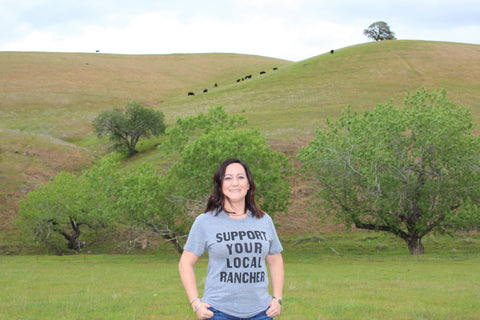
Rosie Silva wearing our Support Your Local Rancher Tee
____
Public Market Good's goal with these farmer features is to offer up our platform to amplify farmers' stories. We want to celebrate and champion farmers all across the globe and make their voices heard in the conversation around climate change and sustainability.
Being "ag-vocates" to us means advocating for the representation of all farmers, growers, and ranchers. Our hope is that #SustainabilityAgvocates fosters inclusivity and recognizing diversity within the farming community.
We are pleased to feature rancher Rosie Silva as our fifth #SustainabilityAgvocate. Rosie operates Silva Ranch in the Central Valley of California.
___
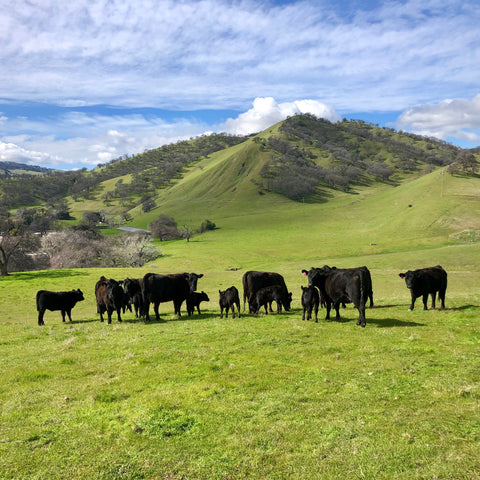
___
Tell us about your farm!
Silva Ranch is a farming and ranching family business. I, Rosie, head up our beef herd including our Ranch Direct Beef Program that provides quality beef shares to our local community. My husband, Michael, runs the farming side of our ranch including hay sales. He also operates our custom farming department, Silva Ag Company. We are a diversified agriculture business; husband and wife team. Much of our family is involved in our day to day operations, including our three children and extended family members.
____
How did you get into farming?
Behind every rancher is a story, the story of their dream. My dream started while I was growing up feeding on a family dairy heifer replacement ranch. I developed my love for cattle at a very young age, working alongside my father in the beautiful Central Valley and Coastal Range of California. As I grew, I made it a goal to own and operate my own dairy heifer replacement ranch. I graduated from California Polytechnic University with my B.S. in Dairy Science and minor in Water Science with an emphasis in irrigation.
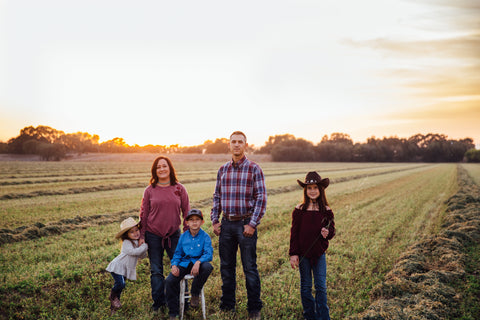
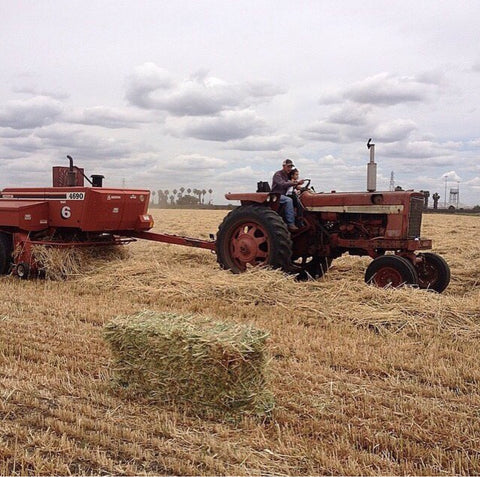
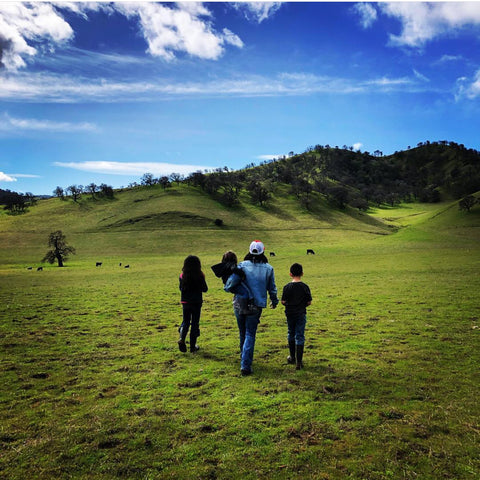
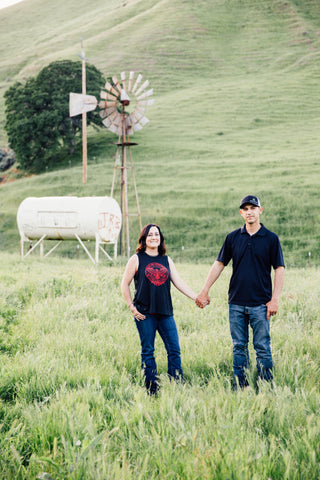
My parents gifted me a Holstein heifer for graduation, and I felt inspired to follow my childhood dream. I raised her and then sold her as a springer (a female ready to calve for the first time) and used the money to buy three small heifers. Each year I worked hard and kept rolling and building my dairy replacement herd. I learned very fast out of college that being a petite girl in agriculture meant a lot of no's, but I was willing to fight for my passion and work other jobs at the same time to pay the bills.
After a few years, things were finally coming together; I made a partnership with an investor and rented irrigated pasture right next door to our home. Finally, an operation that felt good. Sadly, around 2013 dairies in our region began going out of business rapidly. My husband and I made the decision to sell our springers and save up to purchase a beef herd when the "time was right," which meant putting my dream on hold. We fed other rancher's beef cattle in trade for stock to start our own beef herd, but then we lost the lease on the pasture.
After some convincing we got my dad to agree to let us run our cattle with his while we built our beef herd up. Now I'm living a dream better than I imagined, raising beef cattle with my own family and selling quality beef shares directly to local families. Our connection to the land and our community is linked by our cattle, what more could I dream of?
____

___
What are some of the biggest challenges you face as a farmer?
I have faced my fair share of challenging times due to being a woman in agriculture. I've been told no to jobs in agriculture simply because of my gender. When some find out my role on the ranch they say, "Oh, I thought you just did the books." Being a woman in agriculture is challenging but can also be so rewarding. I am blessed to be a rancher, farmer's wife and mother of three beautiful children ages 3, 8 and 10. Being a rancher with three small children can be very demanding. There have been tough times but I have supportive parents and husband that have allowed me to continue to run our cattle operation in times of pregnancy, nursing, school functions, library storytime, sports, etc.
It seems as though each day becomes more challenging for farmers as a whole. Each year brings more regulations and higher input costs with little change in income of the products we so wholeheartedly raise. There is a disconnect between farmers and the consumer. I share our ranch story with our community through Instagram, @silvaranch_beefdirect, in hopes to bridge that gap. I believe your beef has a story and I'm here to share that story with you. I'm excited about the connections I've made and hope to continue outreach to gain a larger voice for agriculture.
It seems as though each day becomes more challenging for farmers as a whole. Each year brings more regulations and higher input costs with little change in income of the products we so wholeheartedly raise. There is a disconnect between farmers and the consumer. I share our ranch story with our community through Instagram, @silvaranch_beefdirect, in hopes to bridge that gap. I believe your beef has a story and I'm here to share that story with you. I'm excited about the connections I've made and hope to continue outreach to gain a larger voice for agriculture.
___

____
What are your thoughts and beliefs on farming in the face of climate change?
There is readily available misinformation about agriculture and climate change all around us. But the facts are, according to the US EPA (2014), agriculture- 9% plays a small role in greenhouse gas emissions compared to electricity- 30%; transportation- 26%; industry- 21%; and commercial/residential- 12%. With only 2% of our population in agriculture, we are an easy target to put the blame of greenhouse gases on but the truth is agriculture is the only industry that can and does sequester carbon. Agriculture can be a tool for fighting climate change. Farmers and ranchers are conservationists by nature. We are continually finding more sustainable practices to implement for the benefit of our families and communities.
____
What are some misconceptions you hear about farming and agriculture when it comes to climate change that you'd like to address?
There are many misconceptions about agriculture's role in climate change. There are many making false claims against agriculture with no science behind their claims. The beef and dairy industry are part of an ecosystem that affects our world in a positive way. For example, dairy cattle eat food waste that would otherwise sit in landfills. Beef cattle are part of a grassland ecosystem that would fail without them. I hope to be a voice for the facts of agriculture and climate change. I imagine a time when the facts drive innovative solutions to climate change, instead of facts being created to support a narrative founded in misinformation.
____

____
What future are you farming for and how do you think your farm can make a difference?
At Silva Ranch, we value hard-work, family tradition, and natural resources. We farm to provide nutrient-dense beef utilizing the natural resources available to us. We farm and ranch for a better future for our children and their children. My parents always taught me that when you borrow something, you return it in better condition than when you found it. I strive to leave the land we farm in better condition for our posterity, as those before us dedicated their lives to improving our opportunities. It has been said that we don’t inherit the earth from our parents, we borrow it from our children.
____

____
Where can we follow along and support you?
Website: http://www.silvafamilyranch.
Instagram: @silvaranch_beefdirect
Website: http://www.silvafamilyranch.
Instagram: @silvaranch_beefdirect

